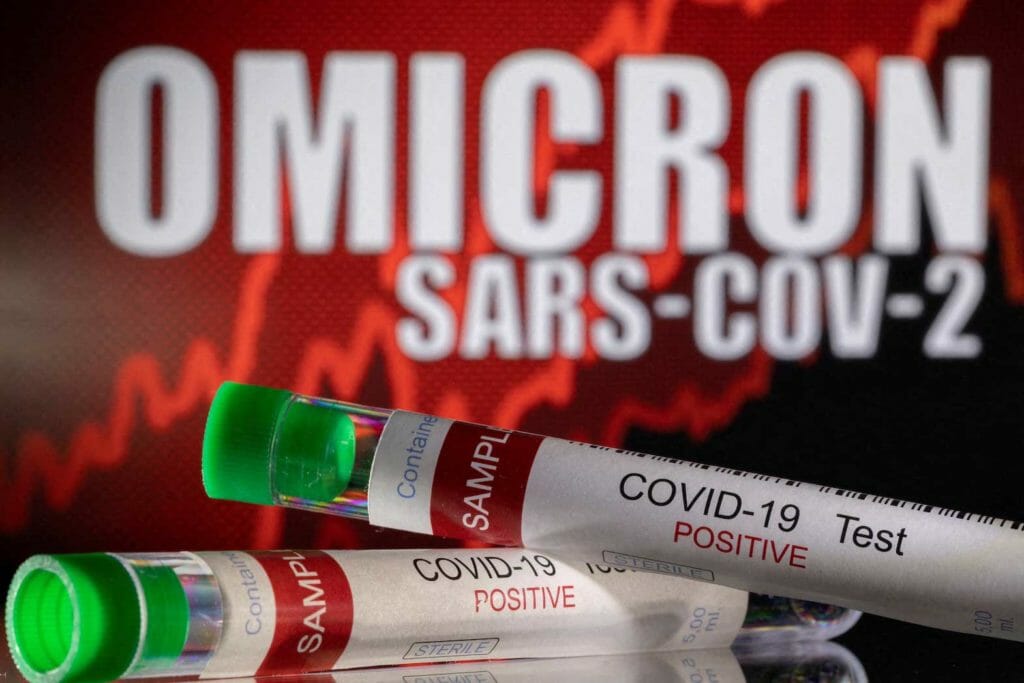Omicron five times more likely to reinfect than Delta – study

Test tubes labeled “COVID-19 Test Positive” are seen in front of displayed words “OMICRON SARS-COV-2” in this illustration taken December 11, 2021. REUTERS/Dado Ruvic/Illustration
The risk of reinfection with the Omicron coronavirus variant is more than five times higher and it has shown no sign of being milder than Delta, a study by Imperial College London showed, as cases soar across Europe and threaten year-end festivities.
The results were based on UK Health Security Agency and National Health Service data on people who tested positive for COVID-19 in a PCR test in England between Nov. 29 and Dec. 11.
“We find no evidence (for both risk of hospitalization attendance and symptom status) of Omicron having different severity from Delta,” the study said, although it noted that data on hospitalizations remains very limited.
“Controlling for vaccine status, age, sex, ethnicity, asymptomatic status, region and specimen date, Omicron was associated with a 5.4-fold higher risk of reinfection compared with Delta,” the study, which was dated Dec. 16, added.
“This implies that the protection against reinfection by Omicron afforded by past infection may be as low as 19%,” Imperial College added in a statement, noting that the study had not yet been peer reviewed.
An earlier study by Britain’s SIREN looking at reinfection risk in health workers, which was carried out before Omicron emerged, found that a first coronavirus infection offered 85% protection from a second for the following six months.
The data analyzed by Imperial College was based on 333,000 cases, including 122,062 of Delta and 1,846 which were confirmed as the Omicron coronavirus variant through genome sequencing.
The new findings could accelerate the imposition of tighter restrictions across a number of European countries in a bid to stem the new variant’s spread.

